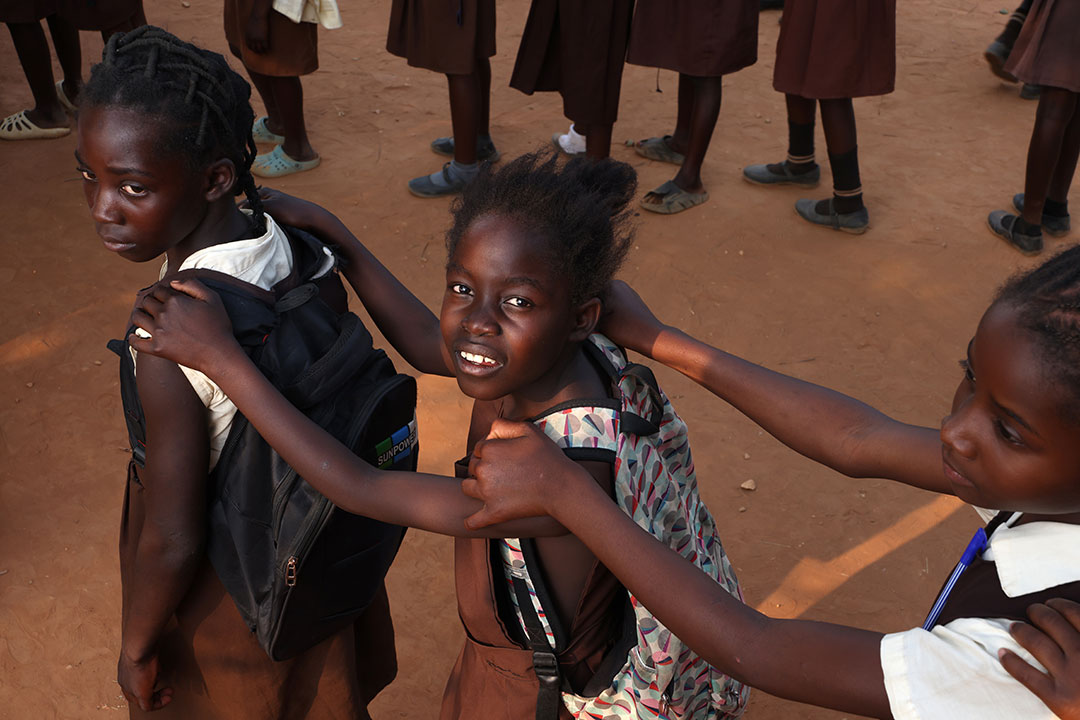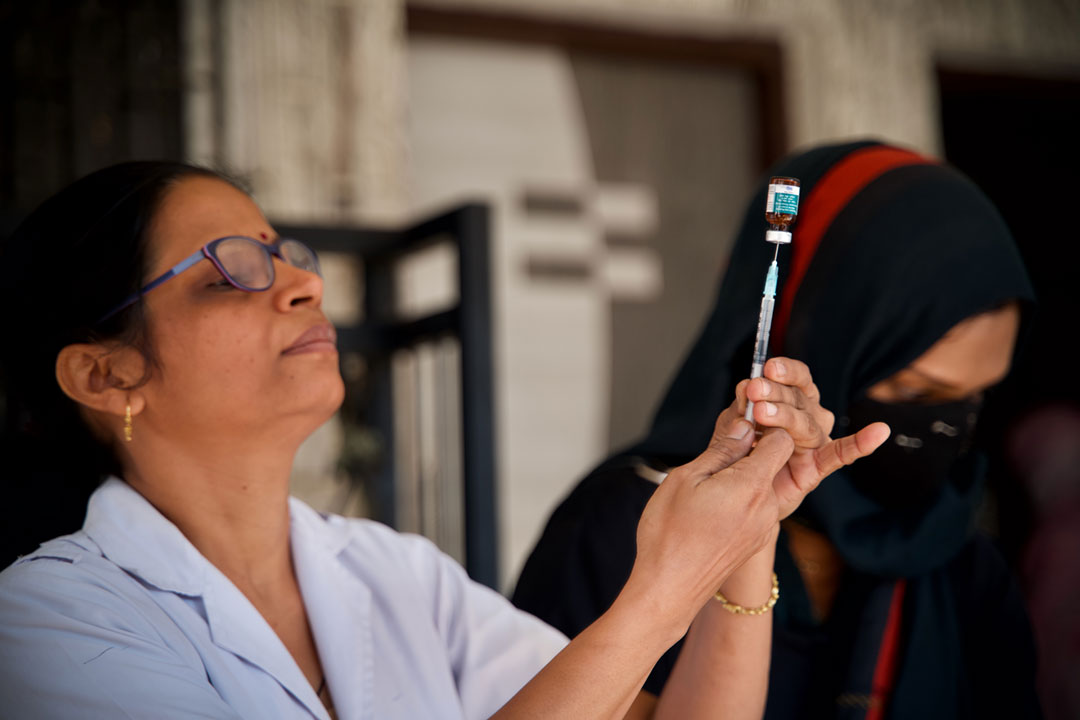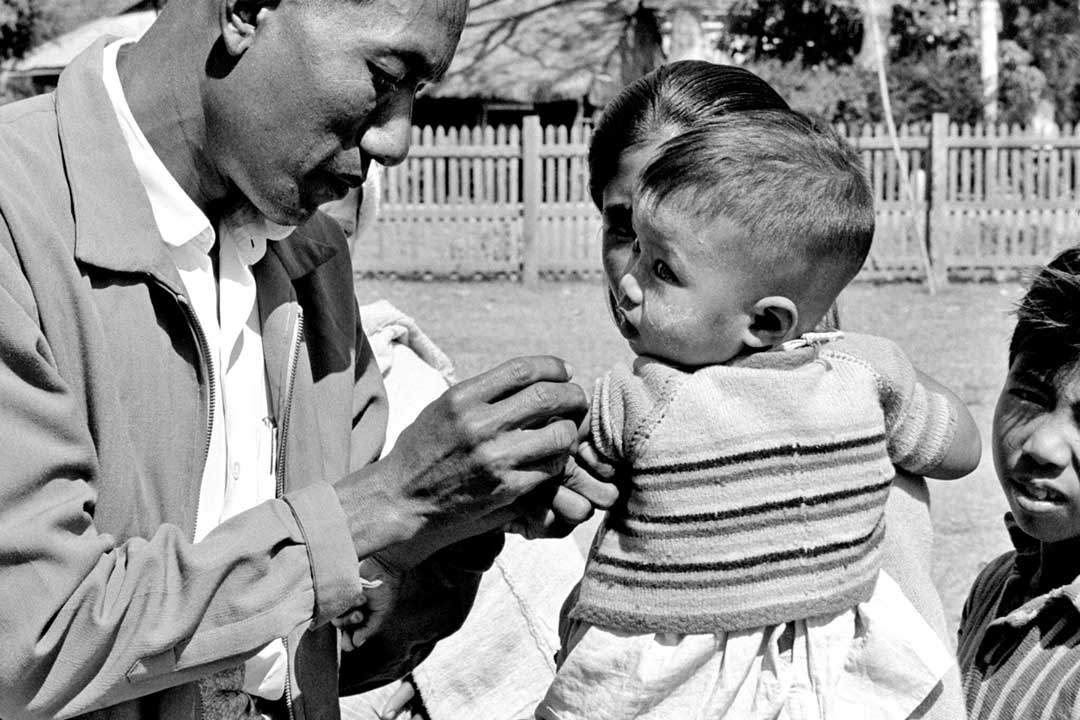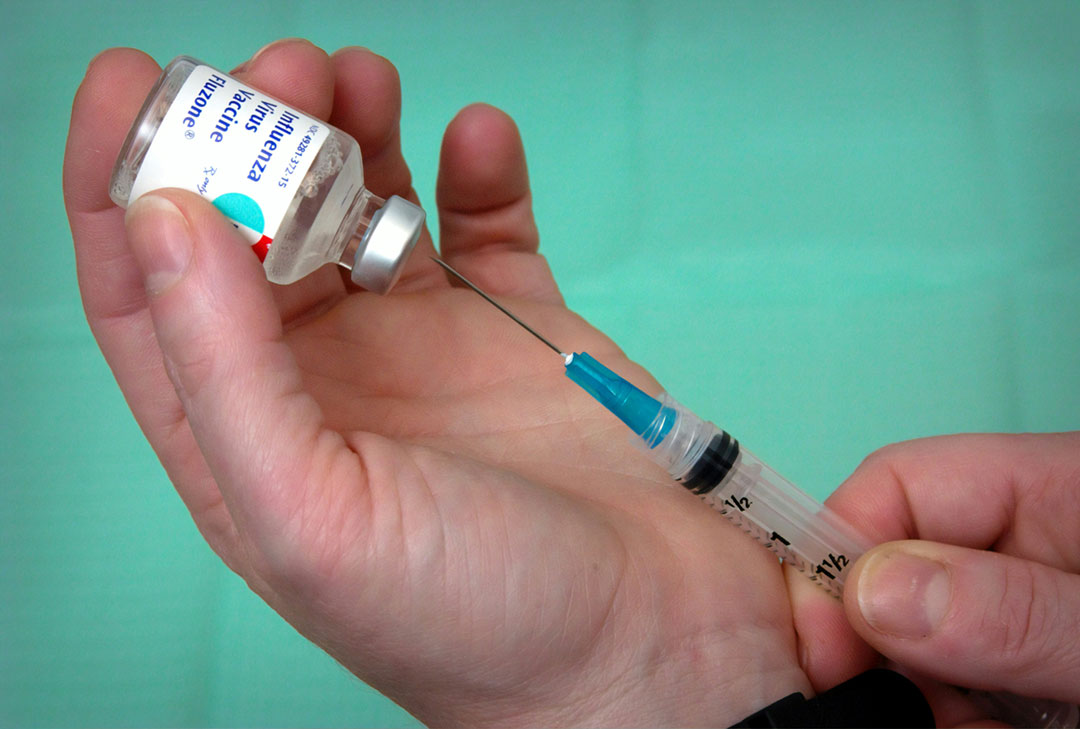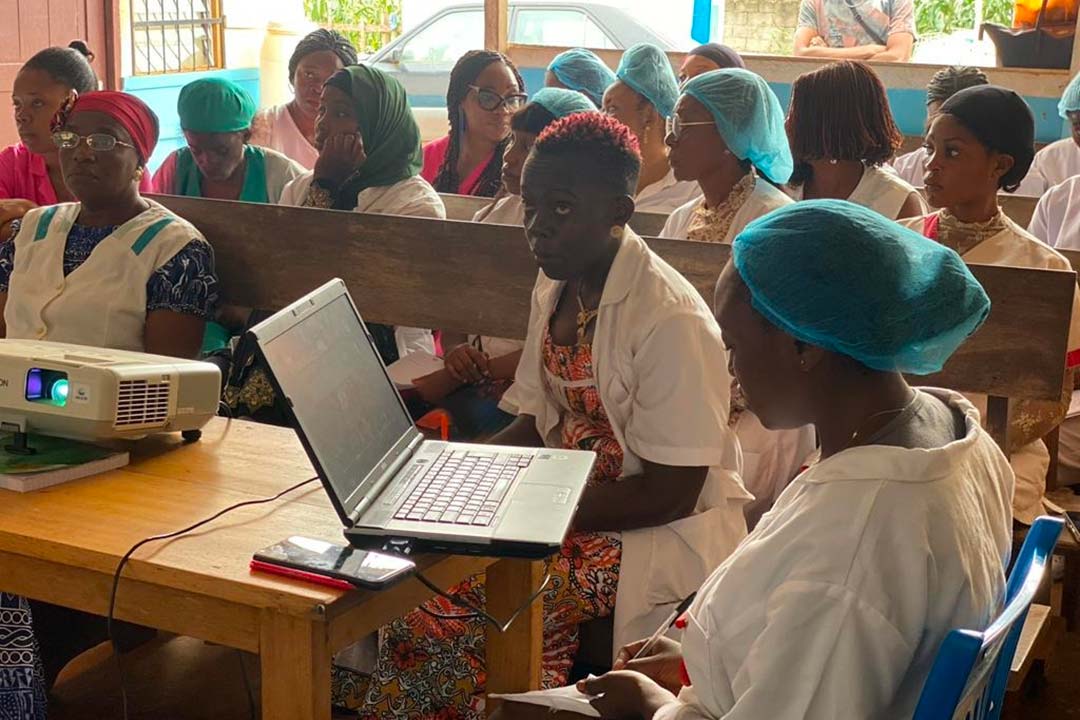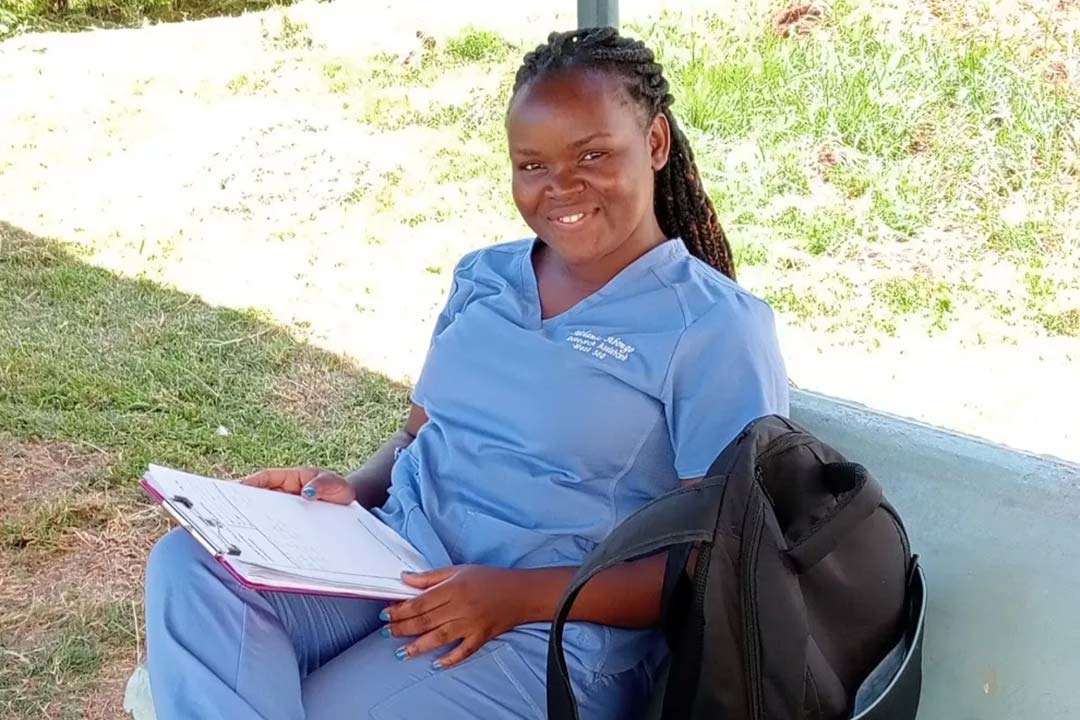University clinics move beyond the student population in Zambia
The clinics on Zambia’s university campuses go beyond catering simply to academics’ and students’ health needs.
- 15 December 2022
- 3 min read
- by Fiske Nyirongo
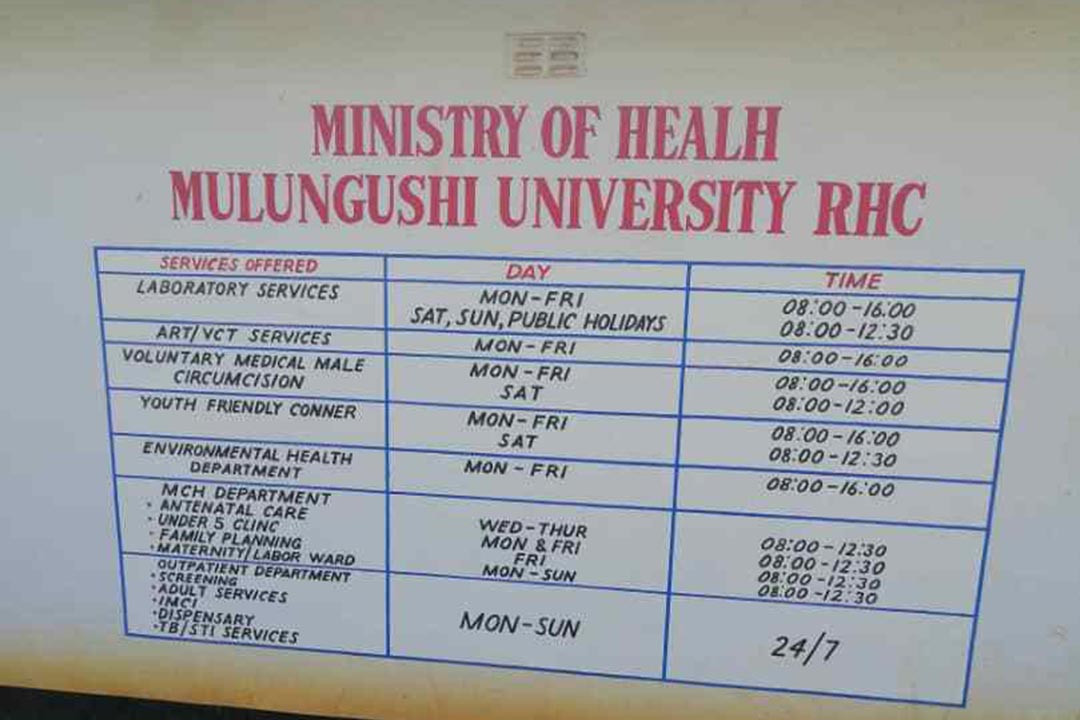
To better cater for students' health needs, the main universities in Zambia built health centres on their campuses. These health centres have grown into clinics that play a vital role in the provision of vaccines, from routine immunisation to the COVID-19 vaccine.
To better understand the work and histories of these clinics, VaccinesWork visited three public university clinics in Central, Copperbelt and Lusaka Provinces.
"It is convenient for me as I only have to get a cab which takes roughly 10 minutes for me to reach the clinic. My daughter got all her under-five injections from the clinic and I got my COVID-19 vaccine from there."
The oldest university clinic in Zambia, the University of Zambia Clinic, is nearly as old as the University of Zambia itself. It was established in 1966, the year after the university was founded, to ensure that the then-small school population could access health services without leaving campus. According to the school's mission, its main objective is to provide quality health care to the students, staff and their families as well as to the general public who live around the school.

Credit: UNZA website
The UNZA clinic is located along the Great East Road in Lusaka, Zambia's capital. It is surrounded by low to high-income residential areas. Residents from these townships are welcome to use the clinic services.
A former University of Zambia student and now resident of nearby Munali, Harriet Banda, says, "It is convenient for me as I only have to get a cab which takes roughly 10 minutes for me to reach the clinic. My daughter got all her under-five injections from the clinic and I got my COVID-19 vaccine from there. It is a convenient place for me and is also in a familiar environment."
Maurine Chitambala, a midwife at the clinic, says: "We follow the Ministry of Health protocols for vaccination. We do provide COVID-19, under-five and other vaccines for adults."
Have you read?
Located in Kitwe, in the Copperbelt Province, the Copperbelt University clinic was also opened to serve its student populace and any members of the public around the school, offering COVID-19 vaccination and routine immunisation, as guided by the Ministry of Health.
Fortunately, there are university clinics located in the more rural parts of the country that help to address underserved populations such as the Mulungushi University Clinic.
The clinic is located at Mulungushi University in Central Province and sits on the banks of the Mulungushi River. The university is the youngest of the three public universities in Zambia, founded in 2008 through a partnership between the Zambian Government and Konkola Copper Mines.
In its initial iteration, prior to becoming a fully-fledged university, it was the President's Citizenship's College, established in 1972 along with the clinic. As with the other institutions, the clinic was opened to provide healthcare to its students.
Allan Kasongo, a lecturer who has been at the school for over 20 years, says, "I found the clinic already there when I first came. I don't usually get sick, so I don't visit the clinic often but it is very helpful for the school and the public."
Mulungushi University's clinic is also open to the public and offers vaccinations.
These three university clinics play an important role in ensuring that vaccines reach everyone. Mulungushi University is government-run, while the University of Zambia and Copperbelt University Clinics are run by the school administration with some government involvement in areas like COVID-19 vaccine provision and health protocols.
